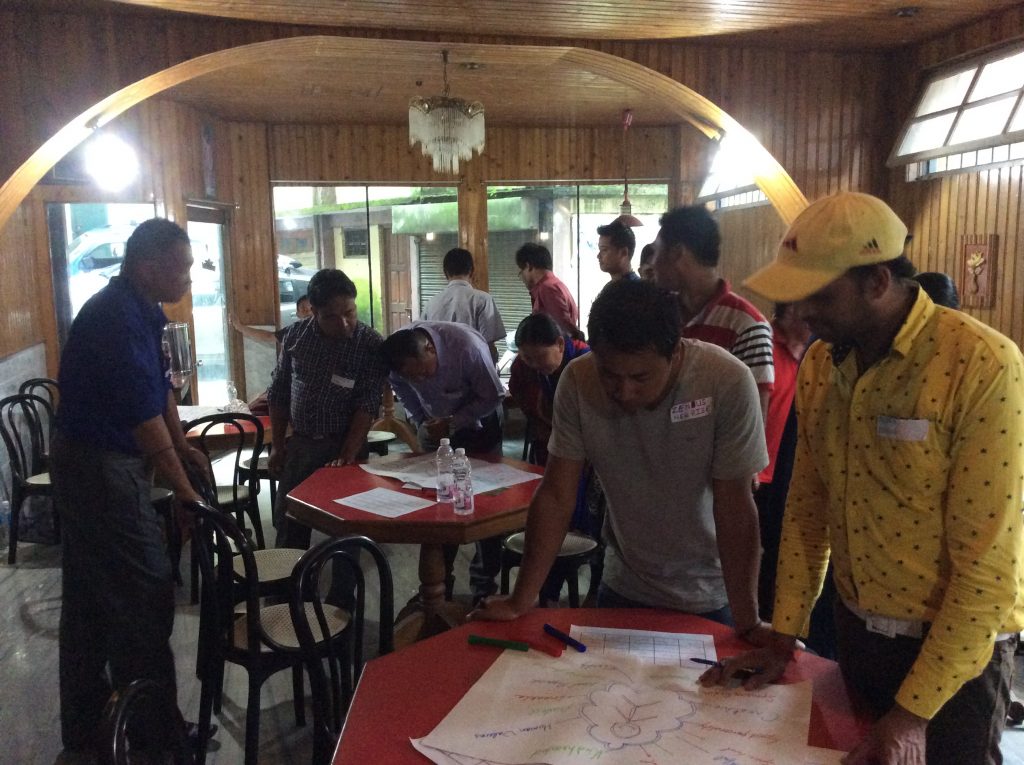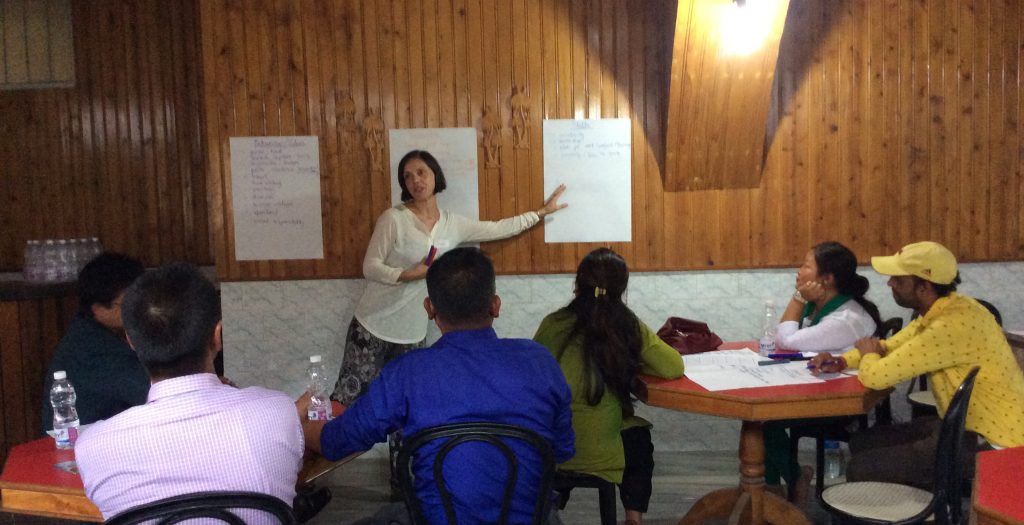Ruth, one of our trustees, visited our projects in Kalimpong with the aim of working with the local teachers to help improve standards of education and engagement. Here, Ruth tells us about working with the teachers to develop their skills and teaching methods. If you’ve missed it, catch up on Part 1 and Part 2 of her blog here!
On Tuesday, I am met by Jiwan (the Mondo Country Manager and Santa’s brother) to go to the hotel where I will be running headteacher/senior staff training for 2 days this week. Our aim: define what makes a Mondo school unique and what our aspirations are for a child who has been educated in one of our school. I am feeling nervous – the heads I’ve met have all been very welcoming and polite, but also quite formal and I’m not sure how they’ll respond to my proposals to establish a self-improving system in our schools.
The training starts very late (after 10am when it was a 9.30 start) and I am struck by the patience of the headteacher of Step-by-Step, who has travelled almost the farthest yet has been there since 9am. Lunch is also late, as is tea, as is the start on Day 2 and again the refreshments. Ironically, one of the key values the teachers prioritise for their students is punctuality! We refer back to that a number of times over the next two days, with much laughter!
I needn’t have worried about the workshops; everyone engaged enthusiastically and with a very high quality of professional dialogue and ideas. Brought together with their colleagues from other schools, the heads reveal their true characters and there is far more laughter and humour than I had anticipated. Ideas flow and there are common hopes/dreams for our children. We share ideas of how to address difficulties in achieving this and drill down to analyse what they truly mean. Again I struck by the fact that I am a long way from home, in a totally different setting, where culture, history, money, training, resources are very, very different. Yet we share the same aspirations for our children and we find the same barriers to achieving them.
When our training comes to an end, there are many goodbyes and hopes to meet again. I have delivered training that I hope has presented new ideas, given food for thought and that the heads will find useful to drive improvements in their schools. At the same time I have learned much from them – practical activities such as the values-based homework one head taught me and which I can’t wait to try in my own school; leadership qualities and aspirations that I’d not considered such as a spirit of competitiveness (learning to win and lose).

Next steps are for the heads to evaluate their schools against the criteria they have decided are most important and then to write their plans of how to address areas that need developing. With the support of Santa and Jiwan, we’ll try to organise this through emails, but that’s not possible for all schools, so some will rely on travelling to deliver their plans.




Comments are closed.